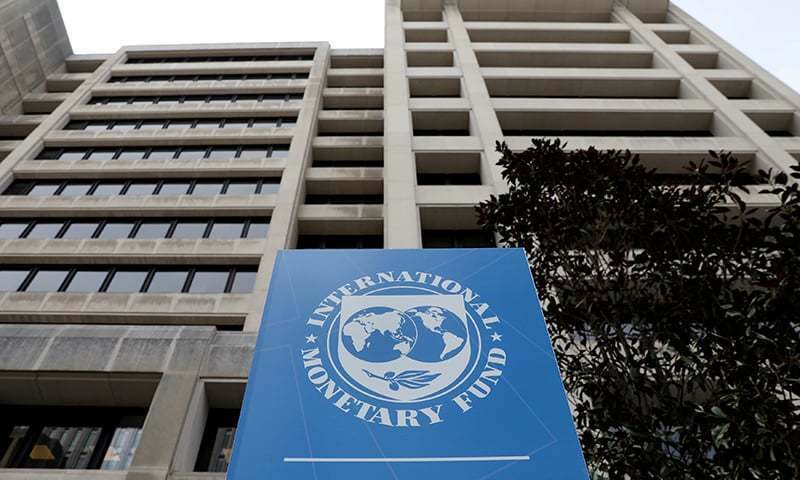By Khaleeq Kiani
Published in Dawn, October 14, 2021
ISLAMABAD: The International Monetary Fund (IMF) on Wednesday forecast Pakistan’s major fiscal indicators gradually improving this year and beyond until 2026.
In one of its flagship publications — Fiscal Monitor — released on Wednesday, the IMF estimated the government’s overall fiscal deficit at 6.2pc of GDP, primary deficit at 0.4pc of GDP and debt levels at about 81pc of GDP during current fiscal year.
This shows improvement over the last fiscal year when fiscal deficit stood at 7.1pc of GDP, primary deficit at 1.4pc of GDP and general government debt at 83.4pc. The fund projected that all key fiscal benchmarks would maintain improving trend over the next five years, showing overall better fiscal position.
For example, the fund estimated fiscal deficit for next year (FY23) declining further to 4.2pc of GDP. It may, however, be recalled earlier in April this year, the IMF had had estimated 5.5pc fiscal deficit for FY2022 and 3.9pc for FY2023. On the longer horizon, the fund estimated the country’s fiscal deficit going down to 3.2pc of GDP by 2026, instead of 2.9pc of GDP it had projected earlier.
The IMF forecast Pakistan’s general government gross debt coming down to 80.9pc of GDP during current year from the highest peak of 87.6pc of GDP in FY20 followed by 83.4pc of GDP last year, mainly because of increase in the size of GDP. It projected the gross general government debt to reduce to 75.8pc next year (FY23) and scaling down gradually to 63.6pc of GDP by 2026.
The net debt to GDP ratio – after adjusting for repayments etc – was also estimated to come down to 74.8pc of GDP this year after hitting a record 80pc of GDP last year. It is estimated to maintaining a decline trend over the next five years to reach 59.4pc of GDP by 2026.
Likewise, it projected primary account turning positive 1.3pc of GDP in FY23 from a primary deficit of 0.4pc during the current year. The primary surplus would remain 1.3pc for next two years and slightly increase to 1.4pc of GDP in 2025 and 2026.
The fiscal monitor also estimated Pakistan’s revenue-to-GDP ratio improving to 15.4pc of GDP during current year against 14.5pc last year. It projected the revenue to GDP ratio to remain unchanged at 16.6pc of GDP for next four years, instead of its earlier projection of 17.6 of GDP for next four years. This showed the IMF has limited expectations to lower revenue performance of the revenue machinery.
On the other hand, the expenditure to GDP ratio is also projected to remain unchanged at 21.6pc of GDP during current year as it stood last year but would keep declining from 20.8pc of GDP over the following two years and gradually climb down to 19.9pc of GDP by 2026.
The IMF advised the member countries to show fiscal responsibility even though lot more needed to be done to support economies. It said that amid the uncertain outlook and sizeable challenges to public finances, governments need to act on several fronts and calibrate policies to the pandemic and to economic developments and prospects.
It said the fiscal support should be unwound gradually, and fiscal actions should aim at containing risks to public finances and at preserving price and financial stability and at the same time prioritise the transformation of the economy to make it smarter, greener, and more resilient and inclusive. “This means greater investment in physical capital, education, and social safety nets, as well as more support for retraining and reallocating workers to new and better jobs”.
Simultaneously, it wanted the governments to gradually increase tax revenues where necessary and improve the efficiency of spending. “These steps are all the more urgent in low-income developing countries given the prospects for a persistent fall in revenues, which could reduce available financing for achieving the Sustainable Development Goals”.





